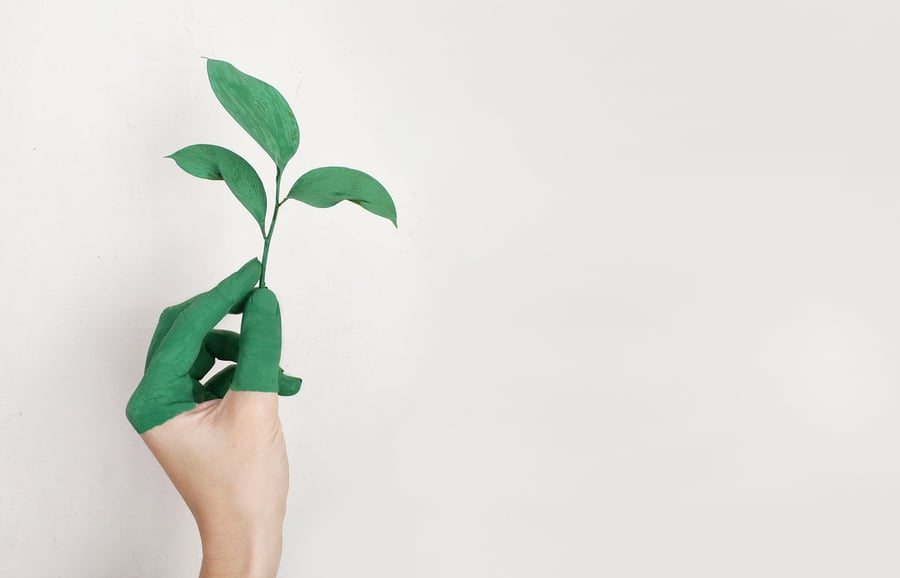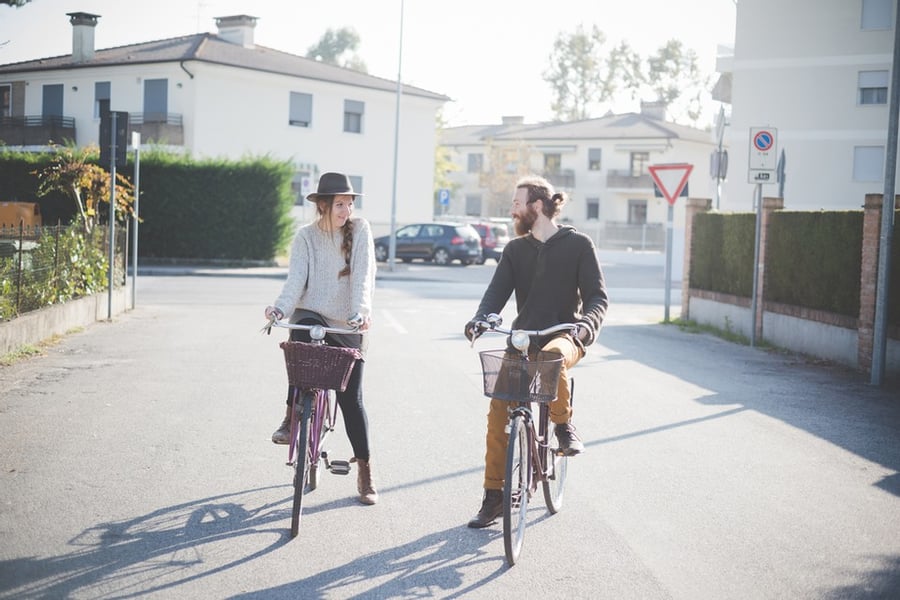Eco-friendly traveling in 7 easy steps
BONUS:
By the time you finish reading this, you will know how to count to 7 in Greek

In sustainable travelling, and sustainable living, small changes by a lot of people can collectively bring a bigger positive change. We have gathered here a few simple tips we can all follow when travelling, as well as in our daily lives. Chances are we may already do some of these; others we can start now. As the saying goes, “Nobody made a greater mistake than he who did nothing because he could only do a little” (Edmund Burke).
So, here we go!
éna (1): avoid single use of plastic as if your life depends on it (it kind of does)
The world is catching up to the vast amounts of plastic our life revolves around today: of the 8.3 billion tons produced, 75% have become plastic waste; of that, only 9% has been recycled. Enormous quantities of plastic waste end up in waterways and, eventually, the ocean, with profound impacts we are only beginning to understand. The reduce-reuse-recycle mantra is more relevant than ever.
.png?width=566&name=Eco%20-friendly%20traveling%20in%207%20easy%20steps%20(1).png)
We can avoid single use plastic by bringing a reusable water bottle (in Greece, tap water is safe to drink in most places), a reusable coffee cup and cutlery, and packing a foldable carrier bag to use for shopping. Perhaps opt for a cone instead of a cup and plastic spoon for our ice cream! And, remember: #strawssuck! We can either ask not to get one with our drink or bring a reusable one.

dyo (2): choose transportation wisely
Travelling and transportation – an ecological conundrum. There are benefits and costs when it comes to travelling, and we think you’ll agree that the former outweighs the latter. Things we can do to reduce our environmental footprint: pack light (it’ll take less effort (=fuel) to get you up in the air). Take non-stop flights when possible (it’s taking off and landing that are the most emissions-intense).
Use local public transport. Rent hybrid cars. Cycle. Walk. Breathe in. Discover.

tría (3): same applies to accommodation
You have arrived! Hopefully not too tired and up for some exploring as soon as you put our bags down! And hopefully, your chosen accommodation agrees with your environmental conscience. There are a number of global sustainability accreditation and green labels, some of which are relevant to Greek accommodation options (e.g. Green Key). These translate into good practices in terms of management, cultural heritage, social & economic, and environmental criteria. Each traveler can contribute further to reducing travel accommodation impact by engaging in simple actions, like remembering to turn the lights and air conditioning off when not there and using sheets and towels for more than one day.
téssera (4): eat and drink what’s local and in season
Always opt for local seasonal produce, and enjoy fresh produce from local markets, to avoid food and drink that has traveled almost as far as you have, to sit in the table. Travelling through local flavors is as enriching an experience as travelling across geographies (some say it even beats time-travel!)
pénte (5): respect the local environment

Respect the environment and local wildlife wherever you go and keep your impact to a minimum. Keeping on marked trails and picking up after ourselves – and even after others – are simple, practical ways of doing so. It is worth finding out about recycling options in the places we visit. And another thought that’s recently come to our attention: researching our -otherwise indispensable- sunscreen: is it biodegradable and non-toxic?
éxi (6): engage in fulfilling yet low-impact activities
Considering the environmental footprint of your holiday activities will help you choose wisely: kayaking and windsurfing will have a lower impact than riding a jet-ski, for example. Energy-intensive doesn’t necessarily mean more exciting! There is a wealth of immersive experiences that prove to be so much more rewarding. This is where a well-informed travel agency can help: you can learn about their environmental policies and make informed choices about the activities in which we engage.
eptá (7): learn about local issues
This is a prompt to not only “leave no trace” from our visit, but also have a positive effect. For instance, there is always the option of contributing practically or financially to local causes that are close to heart. Even if that is not the purpose of our trip though, just learning about local issues and being mindful of these, and passing the message along to friends who might be visiting the same place to be mindful too, goes a long way towards strengthening the culture of the environment-conscious traveler.
It’s up to all of us to preserve beauty around us. That way we, and others, can always return to it in our travels.
Ioanna Golemi, Environmental Economist
SUBSCRIBE TO OUR NEWSLETTER
Travel ideas & local insights that will keep you always up to date.
copyright © 2020 travel12 | traveling experiences all rights reserved
- terms and conditions
- privacy policy
-
ministry of tourism licence number: 0206E60000594201


